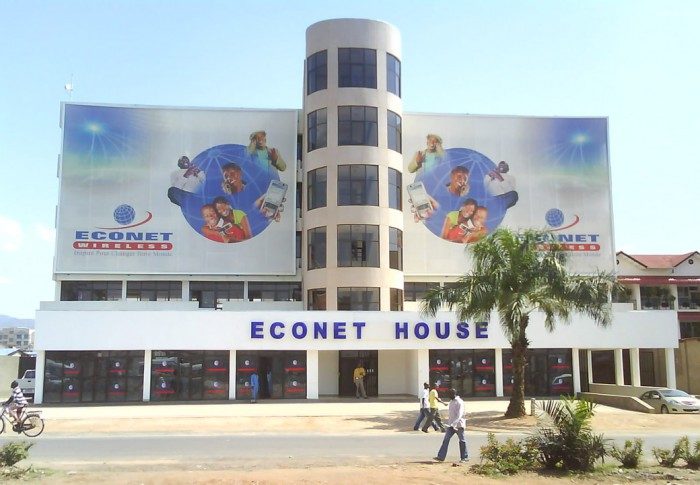


ECONET Wireless Zimbabwe is to increase its investment in the financial service sector, through which it has already become an aggressive player via its banking unit, Stewart Bank. The country’s largest mobile telecommunication company by earnings and subscribers said this after noting the constant and rapid changes in the telecommunications industry, noting that a high performance, innovation-led culture was critical to ensure the creation of new commercial opportunities.
But it indicated that voice would remain a fundamental pillar to its operations.
Speaking at the presentation of its financial results for the half year to August 31, 2014, chief executive officer, Douglas Mboweni, said Econet’s subscriber growth had surpassed nine million, with a market share of 65 percent. The country has a voice penetration rate of 106 percent, while broadband penetration is at 47 percent, which is second in the region to South Africa.
“With voice in mind, we will ride on the technological trends happening around the world…If you look at what’s happening around things like WhatsApp, these are in line with technological trends and it is pointless for us as an organisation to fight those technological trends,” he said.
He said there was adequate capacity to ensure best service quality. Mboweni said Econet was supporting these developments through its robust infrastructure, adding that people were demanding speed and new services. “We have put coverage throughout the country and we are now saying let us make sure that we take advantage of this cloud of existence to plug into that cloud services and products that are relevant to the population,” he said.
During the period under review, Econet’s profit after tax declined to US$49,6 million, from US$70, 5 million the previous comparative period. Direct costs went up by 93,7 percent to US$31 million, while computer related costs doubled to US$10 million, from US$5 million last year. Administration costs also went up by 15 percent to US$46 million, while employee related costs rose by 20,5 percent to US$47 million.
Explaining the increases in direct costs, chief finance officer Roy Chimanikire said the bulk of the costs were related to mobile money services, especially commissions given to incentivise EcoCash agencies. He said the cost increases were necessary as they were meant to help refocus the business towards data and overlay services.
He added that the change in revenue mix had also affected earnings before interest, taxes, depreciation, and amortization (EBITDA) margins. “Voice and SMS are higher margin services and as we move away from those towards lower margin services, our EBITDA margins will be negatively affected. We expected margins to improve through increased uptake of broadband and overlay services,” he said.
Econet executives said they would intensify their strategy to steer the business towards value added services in non-voice products such as EcoCash, data service and Ecolife in order to increase overall net profit. Non-voice products now contribute 21 percent to Econet’s revenues, up from below 10 percent last year. Cumulatively, the contribution of these products to Econet’s revenue has grown by 96 percent since the company began implementing the strategy.
Econet earlier this year announced a new thrust in strategy, under which the business would focus more on growing overlay services to drive revenue growth and margin improvements into the future. “We had anticipated the trend away from traditional income streams. We then took a strategic decision to steer the business towards innovations that would become new sources of growth for our business. We are beginning to see the fruits of that strategy,” Mboweni said.
He however said voice services would remain a critical service offering and would continue to receive the appropriate attention. Reflecting the growth in non-traditional income streams, the number of EcoCash subscribers has grown to 3,7 million from 3 million in August last year. The platform achieved a 110 percent increase in growth to US$27 million, contributing seven percent to total revenue.
The number of agents has more than doubled, rising from 7 000 last year to over 15 000. The number of broadband subscribers shot up from 3,6 million in August last year to 4,7 million this year. The Group declared an interim dividend of 0,61 cents per share. While voice revenue came down by 7,2 percent and now constitutes 67 percent from 77 percent last year Messaging revenue or SMS revenue was also on the decline down 1,2 percent from prior year as a result of the shift in communication towards data enabled services such as WhatsApp.
Econet fought declines by increasing usage through cheapish SMS bundles and SMS based promotions. “EcoCash continue to excite us and we have recently launched the EcoCash debit card and have provided a platform in which a lot of customers are gaining so much convenience through its use,” Mboweni said. Mboweni said Econet’s subscribers had surpassed nine million and had a market share of 65 percent.
newsdesk@fingaz.co.zw